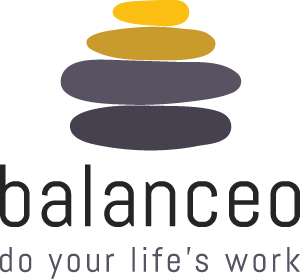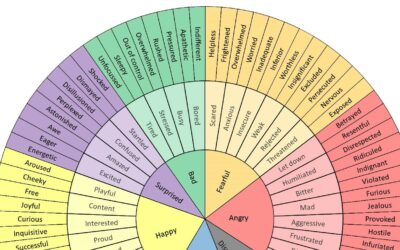Humans are complex. I myself am a father, husband, brother, coach, leader, advocate, activist, entrepreneur and human. While we are all complicated beings, we love ideas that simplify our existence. One prevalent and dangerous idea out there is that of Work/Life Balance. Its seductive nature calls out to us when we are feeling our most vulnerable, most tired, and at the end of our rope. It proves elusive, mysterious, and even impossible – a level of nirvana that can only be attained by the most enlightened. Work/Life Balance is fairly recent idea coming to prominence in the UK in late 70s and US late 80s and is defined as the balance an individual NEEDS between time allotted for work and other aspects of life
There are a lot of issues with this very general definition and I want to talk about them after we discuss balance in general terms. Because we’re talking about about balance, we have some physical, scientific references to help us visualize, conceptualize, and then manipulate our own understandings and beliefs on this subject. Just for fun, I want you to visualize yourself taking leisurely walk through a park alone. You can choose to close your eyes or not, just no sleeping…
As you’re walking through the park, trying to forget the image of the creepy, tall, balding guy with dark rim glasses narrating your journey, you come across a playground and on that playground there is a teeter-totter (or seesaw, whichever you prefer). Now, because you’re alone you’ve got noone to play with, and you still decide that the teeter-totter is the thing you want to play on. You’ve made a spectacular decision, so now jump up on the middle of that teeter-totter and play a little game of work-life balance: the object is not to let either side touch the ground! Work on one side and Life on the other – simple enough right? All you have to do is simply balance the two out so that you can remain upright, find a way to move forward with your life, and create the future you have always dreamed about for yourself and your loved ones. What could possibly go wrong?
There are lots of issues to discuss here. First of all – “Life” as a general term is problematic. It’s too general, and there are too many variables that constitute our lives. It’s too complex, too varied and too personal to be boiled down so crassly. Additionally, the myth part of work life balance mainly comes from this notion that time is the measurement we should be using.
In a nice and neat world, within each 24 hours, we get 8 hours of work, 8 hours of sleep, and 8 hours of “Life”. Neatly divided into thirds – sounds reasonable, right? I also like that we are “allotting” time for life – like we get to choose. It’s like staring at your watch and say, “alright life, your turn now.” The paradox of course, is that when we get to brass tacks, time can be a crucial piece of finding our balance. Even if you are like me who says “Time is an Illusion and the roman calendar is a farce”, we are all living on a rotating planet that literally stops for noone.
The heaviest of the issues have to do with identity issues. How do we define ourselves? I mean, who are we, man? Do we identify with the place we work, with their values, with their beliefs, vision statement, mission statement? This definition supposes a one size fits all identity for all of us. And because work comes first in this definition of balance, it identifies us all as workers first. Is that the identity that you most connect with? Or are there other things that you hold more dear or are closer to the center of your being? Maybe family? Father, partner, sibling, cousin. Perhaps by your Activities? Fitness, fun, day-drinking. What about Faith? God, Country, Yourself. We can’t forget Community! Volunteer, Activist, Neighbor. The main point here is that when identities conflict, the sense of a healthy balance can be deeply affected.
The next question is why should we care? What are the consequences? The biggest answer is Stress, specifically, chronic stress. Not surprisingly American Psychological Association found that nearly three-quarters of adults (74 percent) say they have experienced at least one symptom of stress in the past month, which is the same as reported in last year’s survey (75 percent). Almost half (45 percent) say they lay awake at night due to stress, the same percentage as last year. About one-third of adults (37 percent) eat too much or eat unhealthy food due to stress. Work and money are consistently cited as sources of significant stress, and this year’s survey reveals they continue to top the list, with nearly two-thirds of Americans (64 percent) naming each of these as a stressor. Adults also consider health-related concerns (63 percent in 2018 compared to 59 percent in 2017) to be a significant source of stress. We also know that chronic stress leads to workplace absenteeism due to physical sickness, and in come cases mental health issues (i.e. PTSD and depression). The report also states that “To get ahead, a 70 hour work week is now standard.” The next obvious result to this is BURNOUT – when we reach the end of our rope, and we just can’t anymore. To put a finer point on it, the report refers to “The pathological pursuit to excellence” as one of the main causes. You know whose described as pathological, right? Liars, and most serial killers – that’s who. In these moments of high and chronic stress, it’s important for us to remember that perfection does not exist. As Stephen Hawking reminds us: “One of the basic rules of the universe is that nothing is perfect. Perfection simply doesn’t exist…..Without imperfection, neither you nor I would exist.”
One of the biggest aha moments I had during this process was when I came to the quote in the APA report that said, “psychoanalysts diagnose uncertainty as the dominant attitude to life in the postmodern society.” It got me thinking about potential solutions for turning uncertainty into clarity. A couple examples come to mind:
- Nigel Marsh gave an amazing Ted Talk – and I invite you to watch it. The simplicity of it is staggering and it includes a story that brought me to sudden and unexpected tears. He identified 4 core issues after studying work-life balance.
- Reality and choices – there are certain choices that are fundamentally incompatible with being meaningfully engaged on a day to day basis with a young family. First step is realizing the reality of the situation: Working long hours at jobs they hate, to enable them to buy things they don’t need, to impress people they don’t like
- Government and corporations aren’t going to solve this issues for us – we must stop looking outside of ourselves for the answers. If you don’t design your life, someone else will design it for you
- Timeframe – we need to elongate the timeframe of how we measure and judge balance. Is a day too short and a year too long? What’s right for you?
- Let’s not fall into the trap of waiting to have a life when we retire. Dolly Parton said: “Don’t get so busy making a living that you forget to make a life.”
- Approach balance in a balanced way
- It doesn’t have to be a total upheaval – the small things matter, The smallest investment in the right places, you can radically transform the quality of your relationships and the quality of life
- Stewart Friedman started the Work/Life Integration Project at the Wharton School of Management at the University of Pennsylvania and has been influencing this conversation ever since.
- The basic premise is that the idea that “work” competes with “life” ignores that “life” is actually the intersection and interaction of four major domains: work, home, community, and the private self. And that when we integrate work and life, we create 4 way wins.
- The principles that he lays out to help guide us on our own journeys are super simple: Be Real, Be Whole, and Be Innovative
- Be Real is to act with authenticity by clarifying what’s important to you.
- To be whole is to act with integrity by recognizing how the different parts of your life (work, home, community, self) affect one another. All this examination allows you to be innovative. You act with creativity by experimenting with how things get done in ways that are good for you and for the people around you.
- Be Innovative – this is where things get exciting because with a push in the right direction we can imagine how this would work in our own lives, and I have a simple proposal and simple idea that I want to share with you:
What if we stopped talking about Work-Life anything and started focusing on Life first? What if we could stop talking about Work/Life Balance altogether, take the structure and simple ideas from Life Work Integration and move to a new conversation about Doing Your Life’s Work? Because words matter, when work comes first when describing the concept, that’s where we focus first. We read left to right, we pay attention to the order of things and that is immediately where our eye and brain are drawn. So, let’s define the life we want first and then figure out how work fits into it…with clarity instead of judgement. There is NO wrong answer! When Nigel Marsh says the reality is that there are jobs and career choices that are not compatible with meaningfully engaging with a young family – maybe you don’t have a family – or maybe you’ve made an agreement with the others in your life that sacrificing that time for work will bear fruit later on in life. Maybe someone else doesn’t see that as balance, but they’re not you! And let’s go back to ourselves in the park and think about that teeter-totter again. What if we focus on the plank as life itself with the two seats identified how we want them – knowing that we can actually only meaningfully engage in one thing at a time. Is it necessarily a bad thing if one side of the plank is peacefully resting in the sand? Even better, what if we stop the side by side balancing act and start moving forward? This is not an easy conversation and is nothing short of, as Nigel Marsh puts it – a complete redefinition of society’s existing definition of success.
So take the first step toward doing your Life’s Work and start defining what is truly, authentically, and wholeheartedly YOU.




